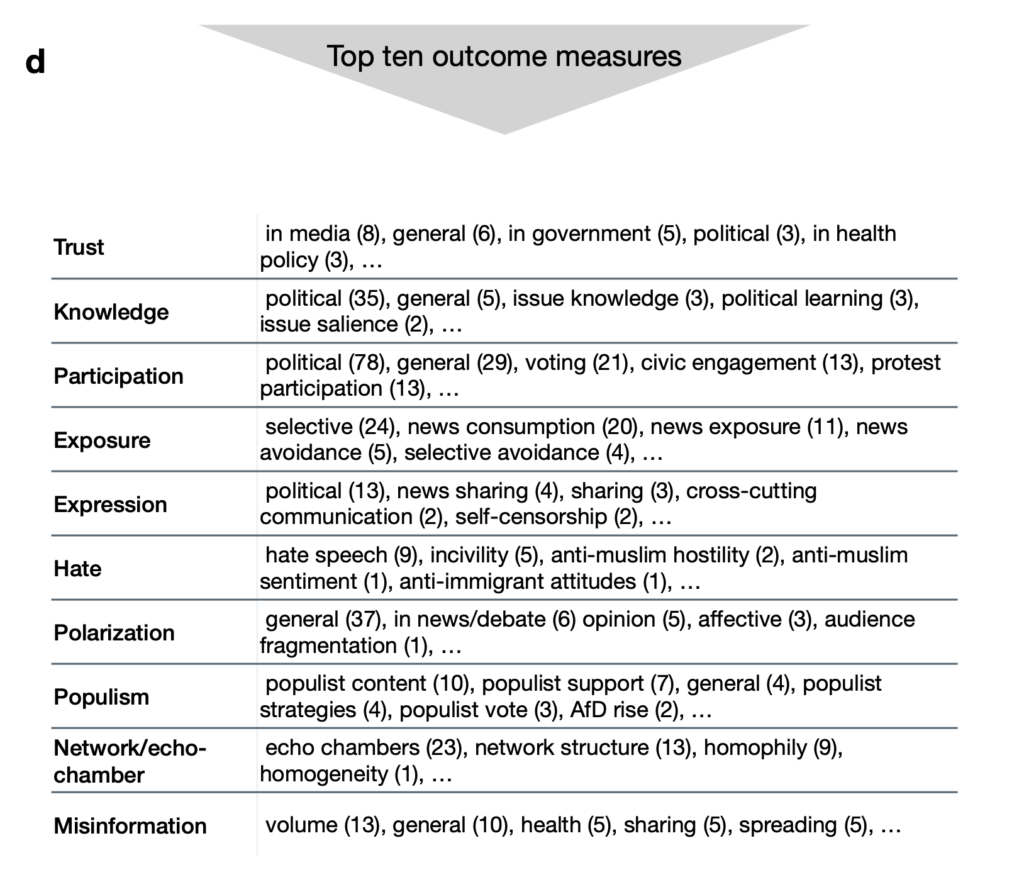"Cause for Concern" on Role of Digital Media in Decline of Democracy
Justin Hendrix / Dec 2, 2021According to The Economist Intelligence Unit (EIU)’s Democracy Index, in 2020 only “8.4% of the world’s population live in a full democracy while more than a third live under authoritarian rule." Across the 167 nations EIU surveyed, the global score that assesses the health of democracy was "the lowest recorded since the index began in 2006." Another measure, produced by the V-Dem Institute at the University of Gothenburg, finds that the "level of democracy enjoyed by the average global citizen in 2020 is down to levels last found around 1990."
While there are many reasons for this sad trajectory, there is a general pessimism among experts on the relationship between technology and democracy about the role that tech plays in the decline. For instance, look at the results of a 2019 survey by the Pew Research Center and Elon University’s Imagining the Internet Center. It asked 1,000 experts-- “technology innovators, developers, business and policy leaders, researchers, and activists”-- about the impact of the use of technology by citizens, civil society groups and governments on core aspects of democracy and democratic representation. Of those surveyed, 49% said technology would “mostly weaken core aspects of democracy and democratic representation in the next decade,” while only 33% said technology would mostly strengthen democracies.
How does that dreary assessment line up with the available empirical research on the impact of digital media on democracy? A new working paper- titled Digital Media and Democracy: A Systematic Review of Causal and Correlational Evidence Worldwide-- may provide some clarity.
A team of researchers in Germany, the United Kingdom and Australia set out to review and synthesize "the available scientific knowledge on the link between digital media and various political variables such as participation, trust and polarization" with the goal of answering the big question: "If, to what degree and in which contexts, do digital media have detrimental effects on democracy?" To find answers, the team sorted through a corpus of more than 3,500 relevant studies, culling them down to nearly 500 with "usable information" for review.
Noting that "it is nearly impossible to simulate democracy in the laboratory," the researchers say that most studies produce only correlational evidence, while only a small subset report causal evidence. Looking at "a broad spectrum of political attitudes and behaviors that are relevant to basic democratic principles," the team focused on "political variables that are multi-dimensional and may be heterogenous and conflicting"-- complex concepts such as populism, participation, polarization, heterogeneity, echo chambers and news exposure, and more.

Naturally, the researchers point out that the authors of the underlying studies emphasize "national, cultural, temporal and political boundary conditions for interpreting and generalizing their results," and they underscore this caution. And baselines are a problem- what exactly are the benchmarks for a health democratic society, anyway? But taken together, the scope of the research in the field still sheds light on the "interplay" between these outcome measures, which they look at in terms of "beneficial and detrimental effects on democracy."
On the plus side, on balance digital media appears to be driving more political participation and political knowledge. After that, things get murky.
"Our results provide grounds for concern," the researchers conclude. "Alongside the positive effects of digital media for democracy, there is clear evidence of serious threats to democracy." Perhaps most serious is the negative impact on trust in democratic institutions. And, the "results also suggest that digital media use is associated with increases in hate, populism, and polarization."
What's needed to get to the bottom of this? Well, "access to data collected by the platforms," of course. And, more studies with better methodologies that get at "interdependent measures" of how all these complicated things fit together. It's urgent, because massive social media platforms can implement changes at scale that produce "widespread behavioral effects."
Indeed, that is one variable that is constant: the commercial nature of the information ecosystem itself. "Most importantly," the researchers say, "we suggest that the bulk of empirical findings summarized here can be attributed to the current status quo of an information ecosystem produced and curated by large, commercial platforms." To these authors, the problems are apparent:
One need not share Habermas’ conception of “deliberate democracy” to see that current platforms fail to produce an information ecosystem that empowers citizens to make political choices that are as rationally motivated as possible. Our results show how this ecosystem plays out to have important consequences for political behaviors and attitudes. Our results further underscore that finding out which aspects of this relationship are detrimental to democracy and how they can be contained while actively preserving and fostering the emancipatory potential of digital media is perhaps one of the most important tasks of the present.
That important task, however, does not fall to scientists working in a world that is in a steady state. There is, of course, a huge differential in the number of studies produced on these matters in the United States and Europe versus the rest of the world, a reality that is driven purely by funding mandates and the distribution of resources in disciplines such as computational social sciences. But as democracies continue their decline, might we contend with the possibility that scientists operating in increasingly authoritarian environments may have fewer resources or fewer incentives to get at these thorny questions? Another reason for urgency.
Lorenz-Spreen, P., Oswald, L., Lewandowsky, S., & Hertwig, R. (2021, November 22). Digital Media and Democracy: A Systematic Review of Causal and Correlational Evidence Worldwide. https://doi.org/10.31235/osf.io/p3z9v
Authors
